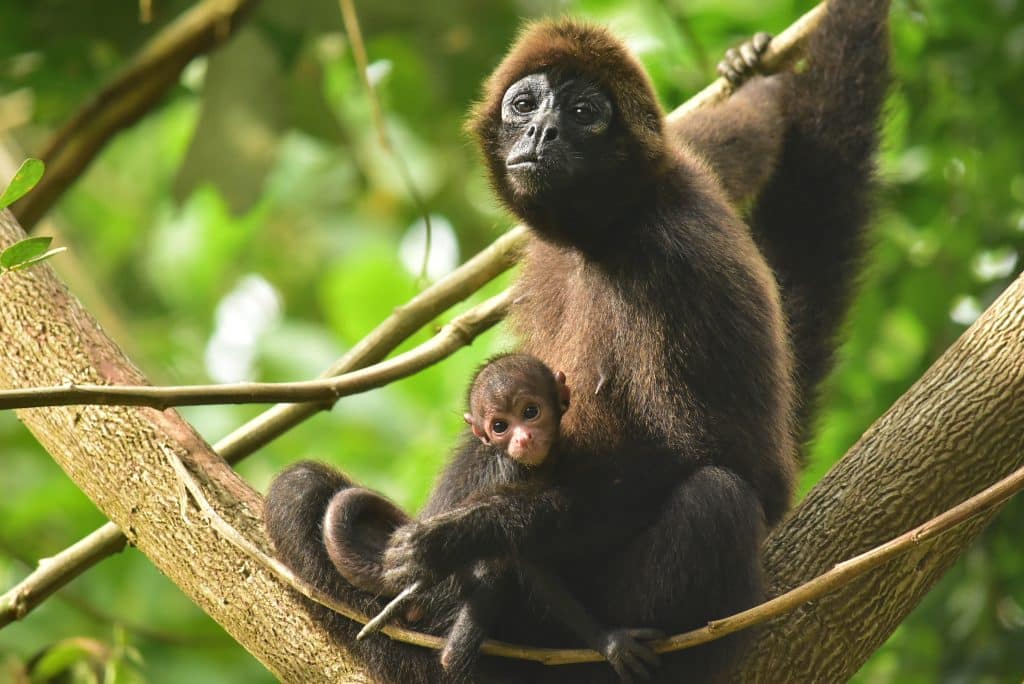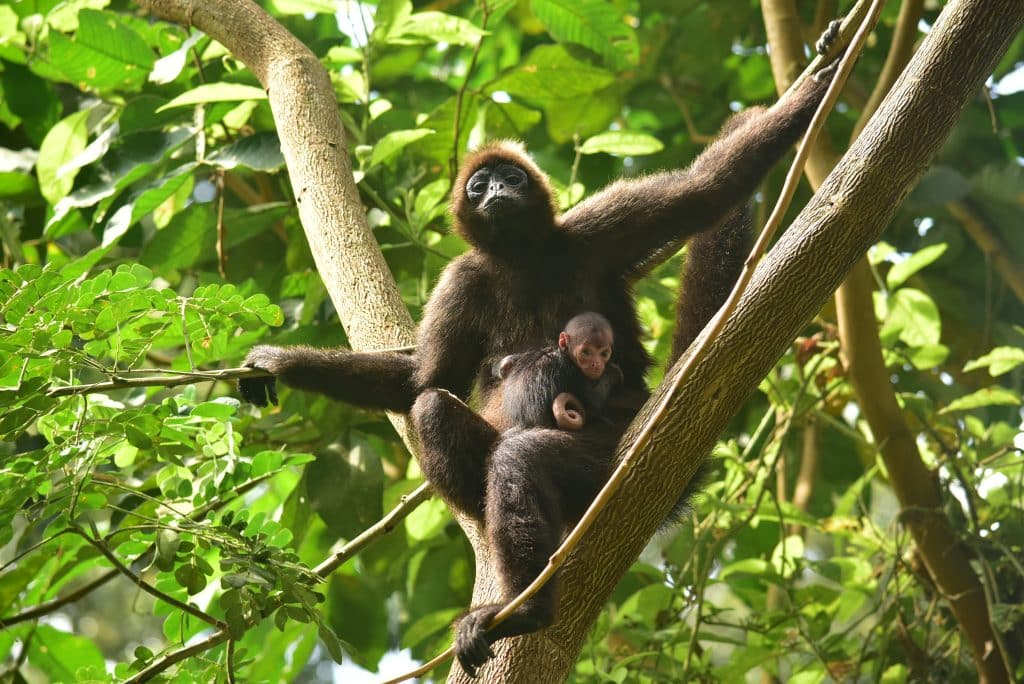The staff looked up with growing concern at Arawi, who was perched on a narrow tree branch high in the canopy. From far below, they could see that she was going into labor. Witnessing spider monkey births is particularly rare because it typically happens in remote locations at night. In addition, at 25 years old, Arawi was considered elderly and very unlikely to be pregnant at all. Mild concern soon turned to gasps as conservationists from Proyecto Washu (PW) saw Arawi’s newborn dangling by its umbilical cord nearly 50 feet above ground. This stress evaporated as soon as Arawi scooped up her infant and began cleaning him, allowing the staff to celebrate this major milestone—the first brown-headed spider monkey birth ever documented.
Proyecto Washu, one of WCN’s newest Conservation Partners, named this baby monkey Anku, which means “resistant.” That name could easily be applied to any of the 22 spider monkeys in PW’s rehabilitation center, where Anku was born. Arawi and these other monkeys were rescued from the illegal pet trade and live under PW’s care. While these rescued individuals are unable to return to the wild, their offspring will one day be reintroduced to the Chocó forest of northern and central Ecuador and help rebuild their population.
Brown-headed spider monkeys are Critically Endangered and some of Earth’s rarest primates. Found only in the Chocó, these monkeys play a key role in their ecosystem by dispersing seeds from fruit they eat, promoting new forest growth. The species is entirely arboreal, meaning they never leave the safety of the trees to touch the ground, where predators await. But because of this, they are particularly vulnerable to deforestation for cattle ranching and agricultural use, which is common in Ecuador. Habitat loss, in addition to poaching for the pet trade, has pushed their ever-shrinking population dangerously close to extinction.
Proyecto Washu’s mission is to save the species by reducing these threats. It’s impossible to know just how many brown-headed spider monkeys still exist in the wild since much of the Chocó is inaccessible, but PW is confident that their remaining population is very fragile. To protect the Chocó forest, PW works with local communities to provide them with sustainable economic opportunities, so they can support their livelihoods without needing to cut down the trees that spider monkeys rely on. In addition to habitat protection, PW also conducts research on wild brown-headed spider monkeys to gain insights into their ecology, behavior, and population health.
Arawi and Anku are recovering comfortably in PW’s facility. She proudly shows off Anku to her caretakers, and will nurse and teach him how to be an adult for the next four to six years until he is ready for release into the Chocó. PW feels fortunate to have shared this rare experience with Arawi, and now as a WCN Partner, they will be better equipped to give spider monkeys like Anku the best chance at succeeding in the wild.



